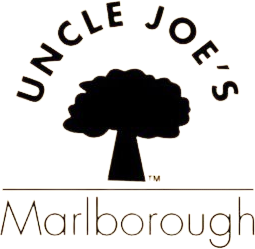Hazelnut Summer Field Days 17 Feb 2018, Alexandra
Speaker: Dr. Alexandra Chisholm's presentation to Hazelnut growers field Day, March 2018
The Nut Research Group* at the Department of Human Nutrition, University of Otago has been involved with research into the health benefits of hazelnuts for more than 10 years. Last year we published eight papers, detailing our research. The health benefits of nuts are being recognised world wide, particularly the effects on cardiovascular disease (CVD), which contributes to around 40% of deaths in NZ. Observational studies investigate what is going on at the population level & need to follow very large groups of people over many years. This is how the Adventist Health Study ‘uncovered’ the heart health benefits of eating nuts regularly. Intervention research can use smaller groups of people who receive nuts, usually compared to some other food, as part of a research study. For example our feeding study (all food provided) examined adding either 30g / day nuts or seeds to the diet of post menopausal women with type 2 diabetes (DM) over 3 weeks. Interestingly we saw positive benefits for both nuts and seeds. Nuts had a better effect on HDL cholesterol and seeds on LDL cholesterol, both key indicators of risk for cardiovascular disease. We have just finished a study with a larger group of women with type 2 DM who have been adding 30g / day hazelnuts or sunflower seeds, or some of both to their diets over 12 weeks. There is also a control group (no nuts or seeds supplied). We are investigating effects on blood cholesterol, blood glucose, body weight, plasma vitamin E and testing for markers of inflammation. Nuts are high in energy and rich in healthy fats, protein, fibre, minerals and vitamins. The fat in all nuts except walnuts is richer in mono-unsaturated fatty acids (like the fat in olive oil) whereas seeds and walnuts are higher in poly-unsaturated fats. The protein and amino acids in nuts may help to reduce inflammation and aid in lowering blood cholesterol. Nuts also contain phyto-sterols, dietary fibre and anti-oxidants, which help to combat inflammation. Given their beneficial composition –a quick way to improve diet quality is to substitute unroasted, unsalted nuts for less healthy foods. One antioxidant compound found in high amounts in hazelnuts is proanthocyanidin. It is concentrated in the pellicle thus removing the skin could result in the loss of greater than 50% of the antioxidants present in the nuts- so more benefit from un-blanched nuts. A project in our department showed that the current fashion of soaking nuts to improve their digestibility does not have any beneficial effect on digestion & may leach out micronutrients. The Adult Nutrition Survey showed that percentage of the population who eat any nuts was low at 28.8% and the amount eaten by those who eat nuts regularly was 18g/day. Most nuts were eaten as an ingredient in some other food, followed by nut butters then whole nuts. A recent interest of our group has been to explore the patterns & predictors of nut consumption amongst the general population. Taste is the biggest plus while concerns about chewing nuts or dental problems may make people wary of eating nuts. We also investigated the recommendations around eating nuts, made by three groups of health professionals. Dietitians were more likely to recommend patients increase consumption of nuts than general practitioners and practice nurses. Most health professionals recommended raw nuts & the most popular recommendations were almonds, Brazil nuts and walnuts. Dietitians recommended around 30g/d, whereas both general practitioners and practice nurses recommended around 20g/d. There were still concerns about weight gain though this has not been demonstrated, as well as issues regarding allergies and cost.
Note: All nuts are purchased for the nut research carried out at Otago University. We have bought all our hazelnuts from Uncle Joes Walnuts & Hazelnuts in Marlborough.
*The Nut Research Group: Associate Professor Rachel Brown, Dr Agnes Siew Ling Tey, Dr Alexandra Chisholm, Mr Andrew Gray, Emeritus Professor Christine Thomson.
References
Current nut recommendation practices differ between health professionals in New Zealand. Brown RC, Gray AR, Yong LC, Chisholm A, Leong SL, Tey SL.Public Health Nutr. 2018 Apr;21(6):1065-1074. doi: 10.1017/S1368980017003469. Epub 2017 Dec 4.
Barriers to and facilitators and perceptions of nut consumption among the general population in New Zealand.Yong LC, Gray AR, Chisholm A, Leong SL, Tey SL, Brown RC. Public Health Nutr. 2017 Dec;20(17):3166-3182. doi: 10.1017/S1368980017002464. Epub 2017 Oct 2.
Nut consumption is associated with better nutrient intakes: results from the 2008/09 New Zealand Adult Nutrition Survey. Brown RC, Tey SL, Gray AR, Chisholm A, Smith C, Fleming E, Parnell W. Br J Nutr. 2016 Jan 14;115(1):105-12. doi: 10.1017/S0007114515004122. Epub 2015 Oct 20.




Leave a comment
This site is protected by hCaptcha and the hCaptcha Privacy Policy and Terms of Service apply.